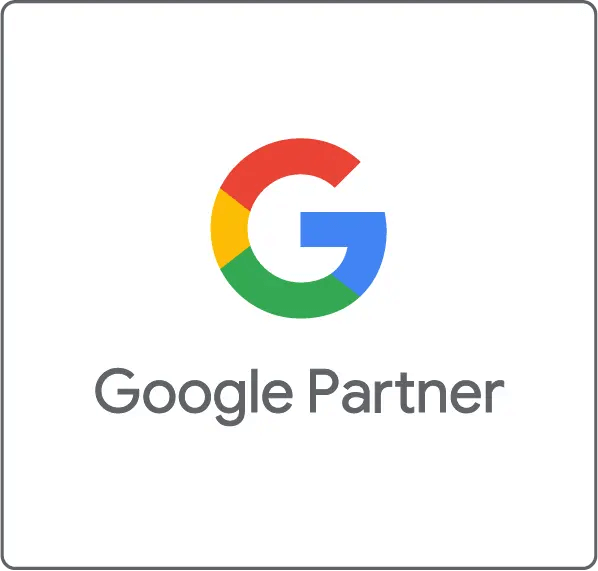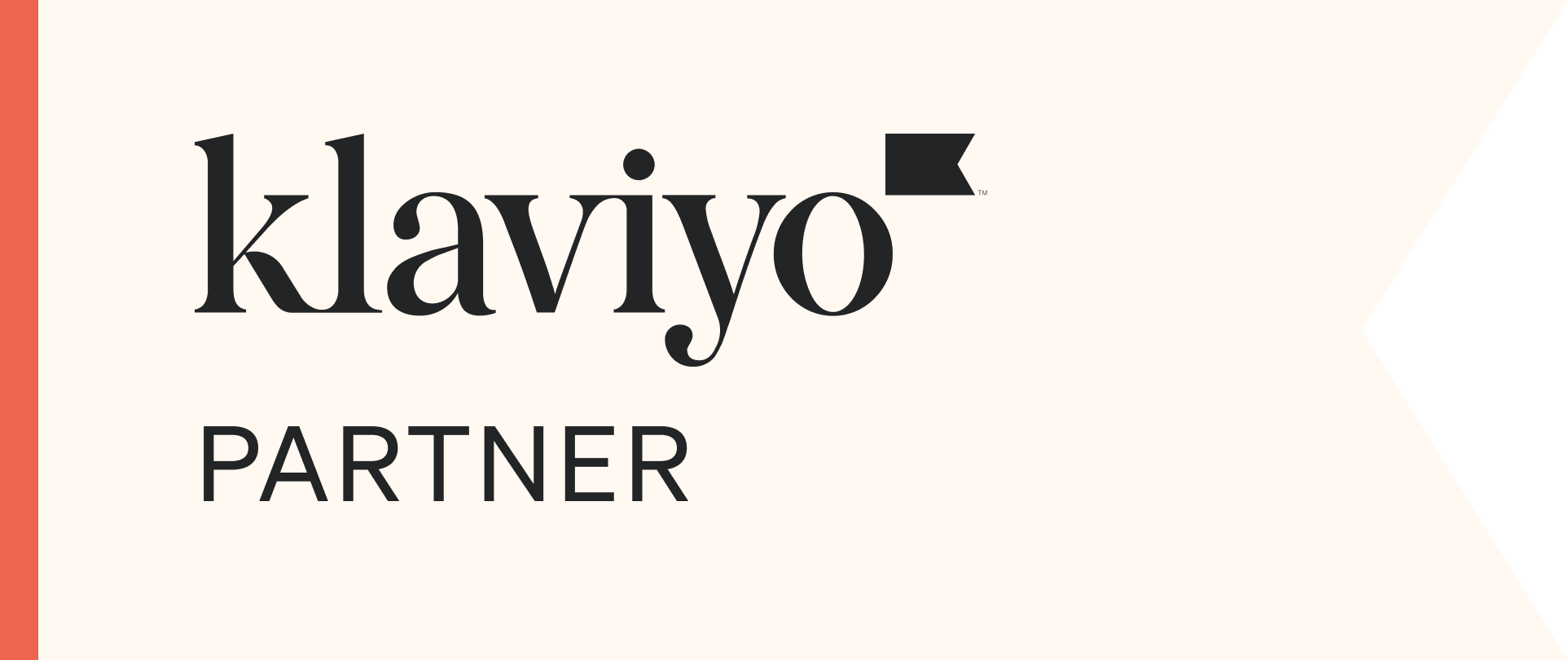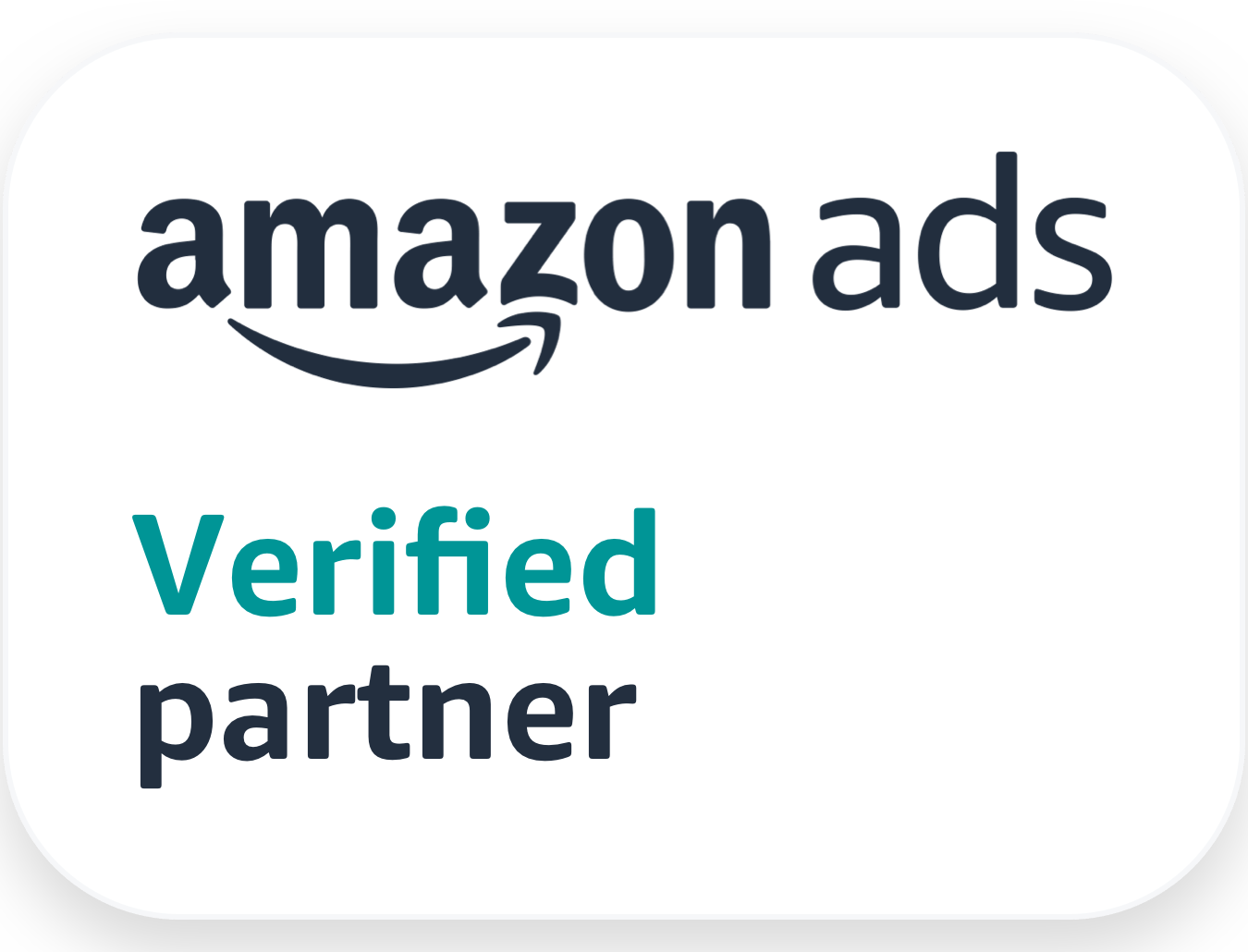Choosing The Right Google Ads Smart Bidding Strategy
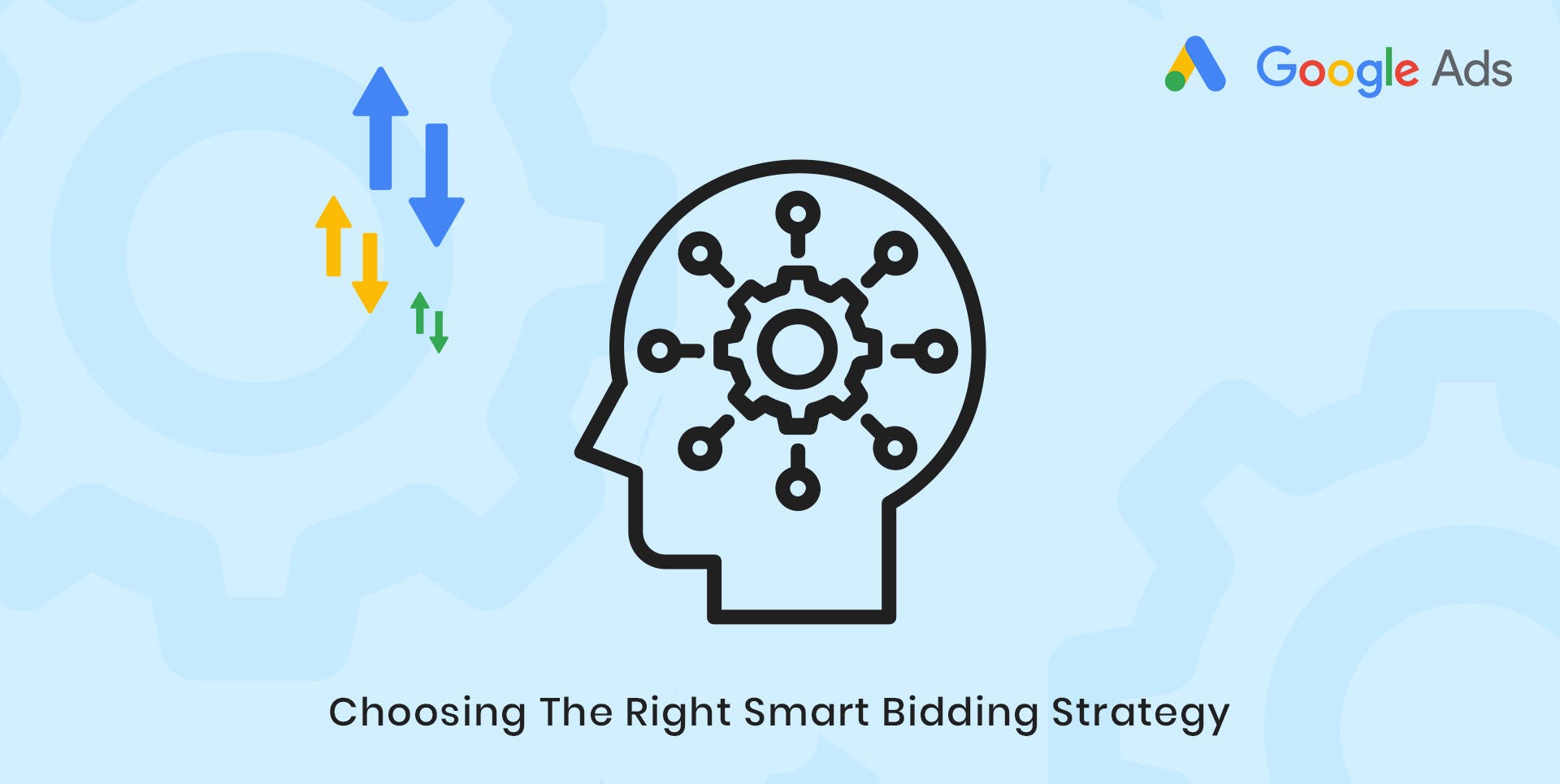
Smart Bidding strategies, where do you start? Bid strategies have evolved considerably over recent years and it can be difficult to work out which one will work best for which campaign. In this article, we will break down the 4 smart bidding strategies that can be used to drive more conversions for your campaigns.
Smart Bidding strategies have been a feature of Google Ads (formally Google AdWords) since 2016. They are a selection of automated bidding strategies that use Google’s machine learning capabilities to optimise for conversions or conversion value depending on the strategy you choose.
Before you get excited, there are a few requirements you need to take care of before selecting any of these strategies.
- At the bare minimum, you need conversion tracking enabled on your account
- Some strategies require a certain number of conversions over a period of time
- Most of these strategies require historical data to perform to the best of their ability. Although you can select these strategies on new accounts & campaigns, I would strongly advise against doing so
How do Smart Bidding strategies work?
Unlike the good old days when you would individually set bids to keywords in your campaign once or twice a day, Smart Bidding strategies automatically set bids for each individual auction in real time.
These strategies also take into consideration certain signals from the user such as time of day, presence in any remarketing list, location and the device the user is using. It also factors in signals such as the browser used, operating system and language settings associated with the user.
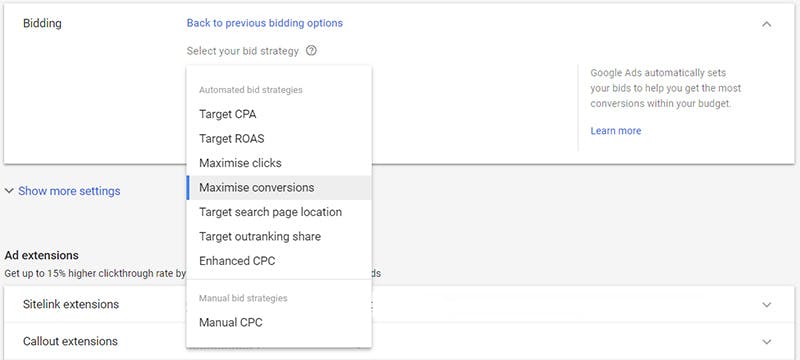
Maximised Conversions
Maximised Conversions has been with us since 2017 and as the name suggests, this bidding strategy has a sole focus on maximising conversions for your campaign while spending the daily budget.
It uses historical data in your campaign and signals at auction time to optimise the CPC if your ad is eligible to appear for the search term.
You need a minimum of 30 conversions over a 30 period before considering this strategy.
Target CPA
CPA stands for Cost Per Acquisition. This strategy can be set at campaign or ad group level and uses Google’s machine learning algorithm to automatically set bids at auction time in order to get the most conversions at the desired cost per acquisition.
For example, let’s say you would like to spend around £5 on every conversion in a campaign that has a budget of £50. In theory, you can expect 10 conversions for every £50 spend.
It is recommended that your campaign has at least 30 conversions over a 30 day period before considering Target CPA as a strategy. It’s also important to set a realistic CPA. Say your average CPA over the past few months is £40. Setting a low CPA of £10 will only hurt your campaign, all that will happen is your campaign won’t spend the budget as the CPA is too restrictive.
Target ROAS
ROAS stands for Return on Ad Spend. ROAS is the revenue you receive in return for every pound spent on advertising. Target ROAS aims to maximise conversion value at the target ROAS set in the campaign. Here’s how to calculate your ROAS.
ROAS = Revenue / Ad Spend x 100
Let’s say you sold £1000 worth of goods and spend £100 doing so. Your ROAS would be:
1000 / 100 x 100 = 1000%
Like Target CPA, it’s recommended that your campaign has at least 50 conversions over a 30 day period, this is due to the strategies dependance on historical data to optimise bids. It’s also important to set a realistic ROAS when using this bidding strategy.
Enhanced CPC
Enhanced CPC helps you get more conversions from a manual bidding strategy. This strategy allows you to keep an element of control while having the benefits of Google’s machine learning. With Enhanced CPC Google automatically adjusts manual bids to help get more conversions, while trying to achieve the same cost per conversion. In order to get the most out of this bidding strategy, it’s recommended that your campaign has at least 15 conversions over a 30 day period.
What’s the best Smart Bidding Strategy for you?
So now you know a little more about the possible bidding strategies you can use to increase conversions and revenue, what strategy would be best for you?
Do you have a new campaign or account? If so, I’m afraid it’s best you sit this out. Stick with a manual bidding strategy for the moment.
You want to increase conversions but remain in control over your bids? Enhanced CPC is the strategy for you.
If you have a specific cost-per-conversion in mind and want to increase conversions then Target CPA is the bidding strategy you want. Just remember to be realistic in your goal.
Are you limited by budget but still want to increase conversions? Maximised Conversions can be your friend in this situation.
If you have a specific return in mind and a healthy level of conversions the past 30 days then Target ROAS is the strategy for you. Like Target CPA, keep your target realistic. Study your historic ROAS before setting a target.
If switching to a Smart Bidding strategy for your Google Ads campaign, it’s recommended that it’s left to run for at least 14 days before making any adjustments.
Final Thoughts
Automated bidding sounds great to most advertisers but carefully assess your business goals before deciding on a new strategy.
Although all these strategies are automated, they are not a set it and forget it solution that some marketers will be looking for, they require the same attention as campaigns on a manual strategy. Automated strategies will almost always spend the allocated daily budget you set. It’s best practice to review your campaign’s budget before making the change.
Hopefully, you now have a better understanding of the Smart Bidding strategies featured in Google Ads. If you’re still unsure what would be the best for your Google Ads campaign, get in touch with the Digital Six marketing team. Our team of certified PPC specialists can help you get the most out of your campaigns.
